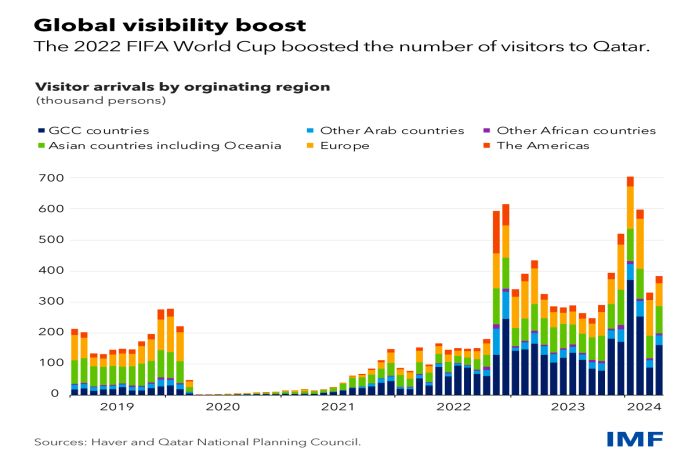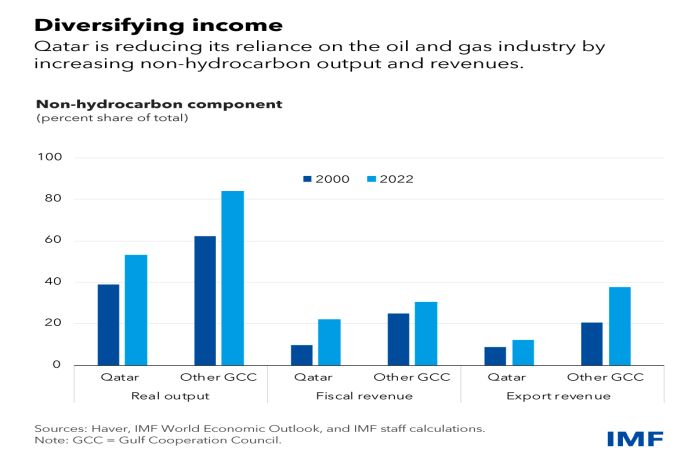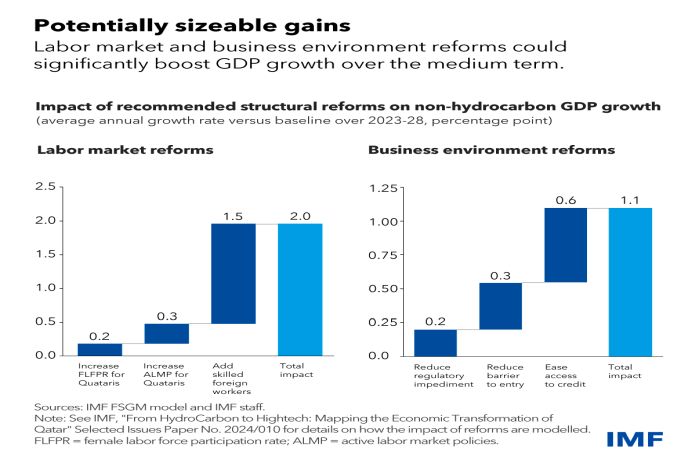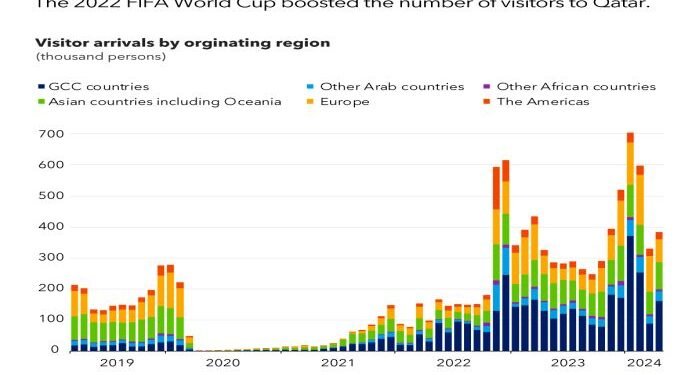
- A shift toward private sector-driven economic diversification requires ambitious reforms
By Ran Bi and Ken Miyajima
Qatar continues to enjoy economic gains after hosting the 2022 FIFA World Cup, which boosted its global profile. Visitor arrivals in 2023 were nearly twice pre-pandemic levels, and tourism this year reached new heights.
Hosting the World Cup has accelerated Qatar’s economic diversification into non-hydrocarbon sectors as its massive public infrastructure investment program since 2011 built out everything from ports and roads to metro and airports. The cost of stadiums represented only about 5 percent of the total infrastructure investment, by some estimates.
IMF analysis shows that the public investment program helped drive most of Qatar’s economic diversification over the past decade, contributing on average 5–6 percentage points annually to non-hydrocarbon real GDP growth. Going forward, the newly created infrastructure can be leveraged to generate new jobs, businesses, and opportunities in sectors beyond the oil and gas industries for further economic growth.
Structural reforms have also accelerated. Qatar has enhanced labor protection for foreign workers, who account for about 95 percent of the labor force. It was the first Gulf Cooperation Council country to abolish Kafala, a sponsorship system for foreign workers that limits their mobility. The government also implemented initiatives to improve business efficiency and attract foreign direct investment. Furthermore, Qatar has advanced digitalization efforts significantly, ranking 16th among 198 countries in the World Bank’s GovTech Maturity Index.

Looking ahead, Qatar’s key challenge remains transitioning from public sector-led growth to a more diversified, private sector-driven model, as envisioned by Qatar’s National Vision 2030. Achieving this transformation requires bold reforms to boost productivity, foster a more conducive business environment, and leverage progress in digitalization and climate actions, according to the IMF’s latest annual economic review. Qatar’s Third National Development Strategy (2024-30), launched in January 2024, sets the strategic priorities in line with IMF advice.

IMF analysis suggests that reforms to attract more skilled foreign workers, ease access to financing for small and medium enterprises, and encourage competition and trade could generate the most significant growth gains. Simulations suggest that a comprehensive package of labor market and business environment reforms could boost annual non-hydrocarbon growth by close to 3 percentage points over the medium term. To maximize gains, the authorities should ensure that complementary reforms are properly sequenced and consistent with the country’s capacity for implementation. Continuing progress with digitalization and climate actions can generate new sources of growth and enhance sustainability.
- Ran Bi is a deputy division chief and Ken Miyajima is a senior economist. Both are in the IMF’s Middle East and Central Asia department.









